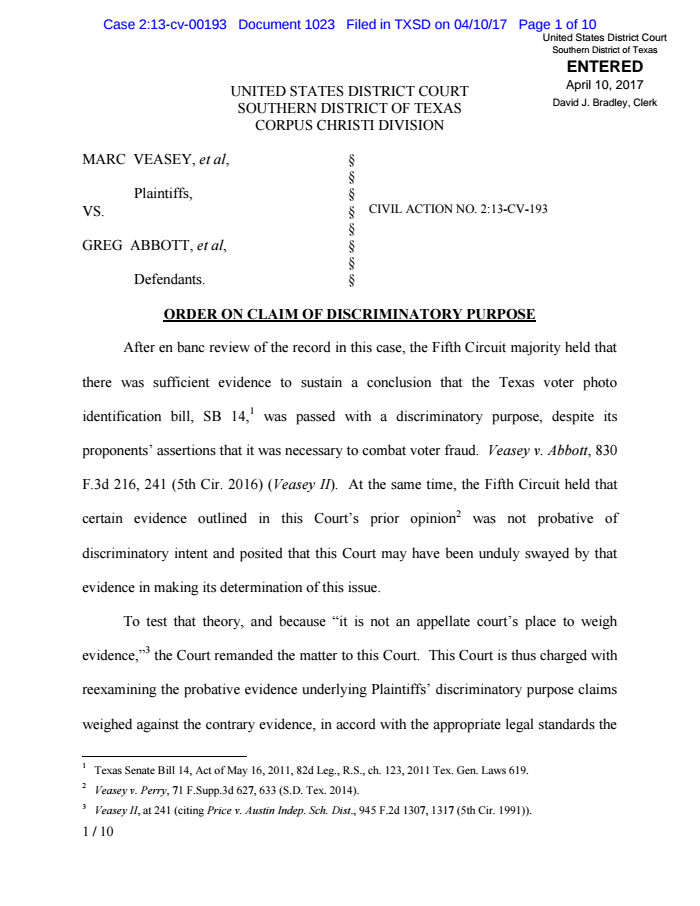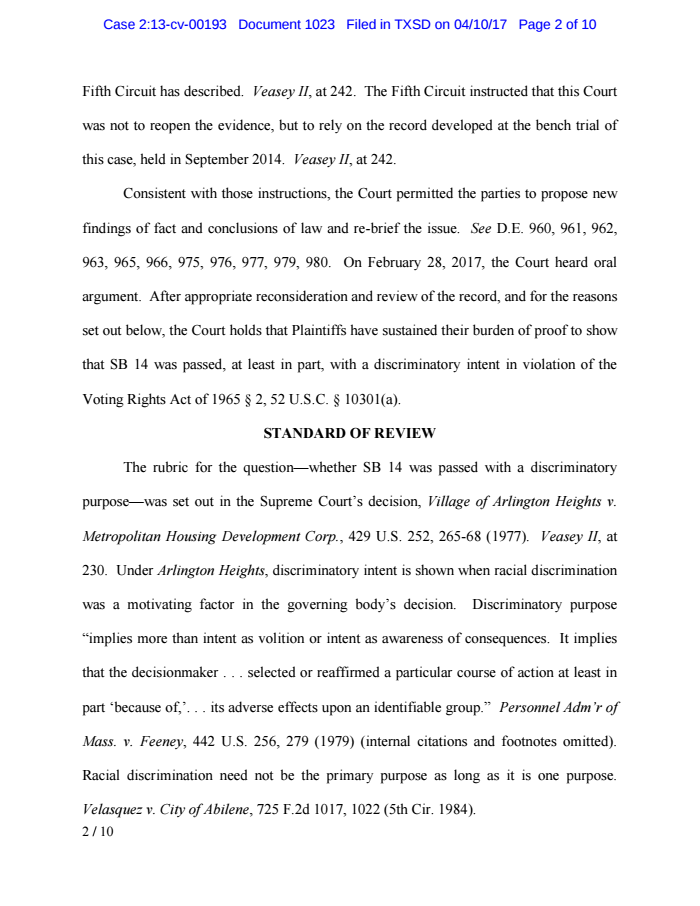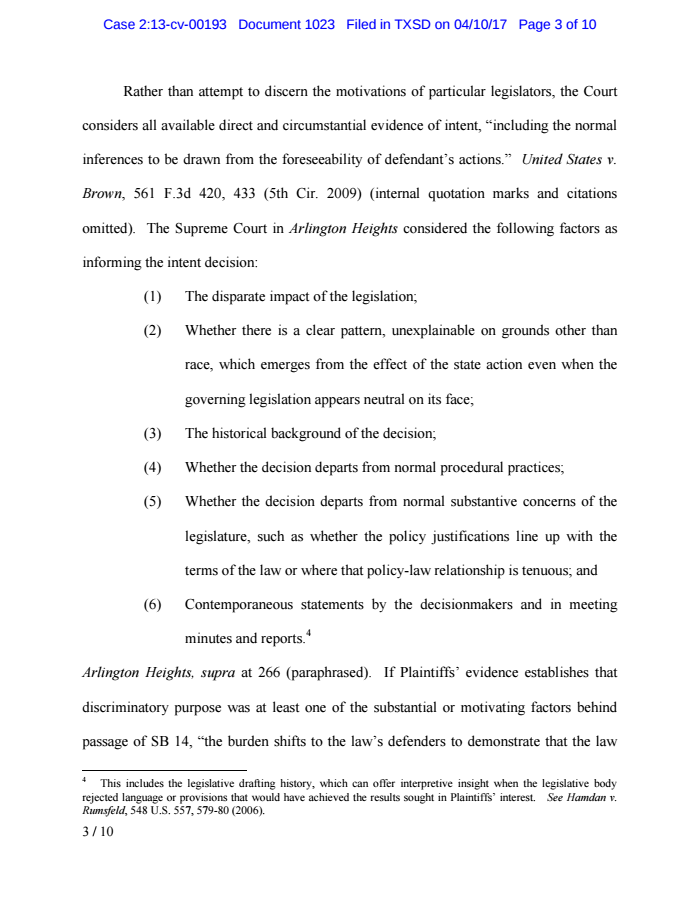April 11 (UPI) — Texas legislators intentionally discriminated against Hispanic and black voters in passing its 2011 voter identification law, a federal judge ruled.
In a 10-page decision issued Monday, U.S. District Judge Nelva Gonzales Ramos wrote that a previous ruling compelled Texas to demonstrate the law was enacted without knowingly targeting minorities, and that the burden of proof “shifted to the State to demonstrate that the law would have been enacted without its discriminatory purpose. The State has not met its burden.”
In 2011 a federal appeals court ruled that Texas’ voter identification law is discriminatory and violates the U.S. Voting Rights Act of 1965. The three-judge panel ruled that Texas’ voter identification requirements disproportionately discriminate against blacks and Hispanics by making it more difficult for them to vote. The 1965 law declares illegal any provision that suppresses minorities’ voting rights. Texas law specifies that all voters bring with them a government-issued identification to the polls in order to vote. The plaintiffs, including the U.S. Department of Justice, claimed the law is discriminatory because many poor and minority voters have a reduced access to the required forms of identification.
The ruling Monday, if it survives expected appeals, could put Texas back on a list of states requiring federal approval to change any election laws. It left such a list in a 2013 Supreme Court ruling.
Ramos’ ruling hinged on whether lawmakers intentionally wrote the legislation with discrimination in mind. Her decision was not based on evidence of intent to discriminate but noted Texas’ long history of discrimination, including the speed with which the 2011 bill passed through the legislature, the “unduly strict” voter identification requirements listed in the bill, and changing reasons regarding the need for the bill, which some said was needed to stop voter fraud.
It is the second ruling in weeks that noted discrimination in Texas’ voting policies. In March a three-judge panel ruled the state legislature illegally redrew Texas congressional districts to isolate minority populations and thus reduce their influence.









